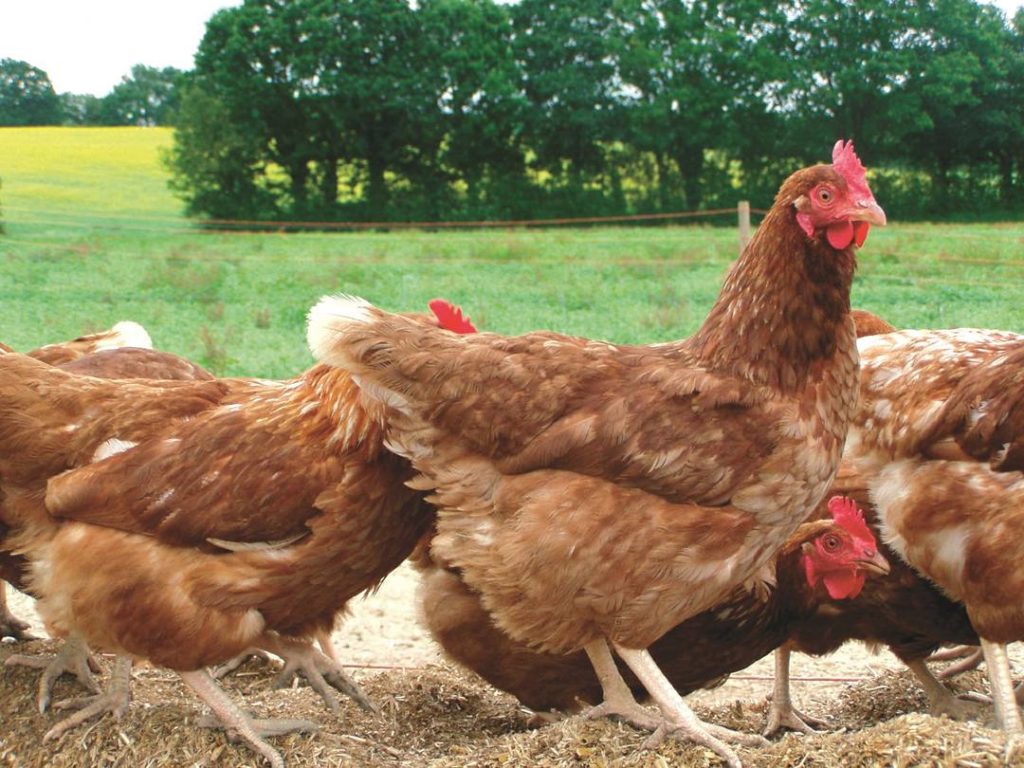 In this article we consider the best grass seed mix for chickens and poultry pasture seed mixes.
In this article we consider the best grass seed mix for chickens and poultry pasture seed mixes.
Allowing hens to free-range on an ordinary grass lawn or standard pasture will let them express their natural desire to wander, scratch and peck but is not going to be very nutritious for them.
Best Grass Seed Mix for Chickens
From the chicken’s point of view, the best grass seed mix should be one that has a diversity of species to provide a wide variety of nutrients. The grasses should tiller well, providing a wealth of young, tender shoots, rich and sweet.
Long stalks of tough grass aren’t very palatable for hens and can cause crop problems. If the pasture has grown long it should be topped before running hens on it.
The grass should be fairly hard wearing and vigorous so that it can recover from the birds scratching. Incidentally, chickens being kept for a few days on a patch of lawn will do it a lot of good. They not only fertilise with their nitrogen rich droppings but scarify the dead thatch from the grass with their scratching whilst devouring pests like leather-jackets.
Usually the grasses will be a mixture of ryegrass and fescues. Rygrass is tough and hard wearing. Fescues establish quickly and spread by creeping from rhizomes.
Clover
Clover is an essential part of the pasture mix. Although included because it fixes nitrogen, it is a good source of protein and promotes the production of omega 3 in the eggs.
Lucerne or Alfalfa
An essential part of a poultry pasture providing protein along with various vitamins and trace elements. These include: phosphorus, vitamin H, vitamin K, manganese, zinc, potassium and selenium. Lucerne also helps increase the omega 3 in the eggs.
Birdsfoot Trefoil
This is a forage legume often included in hay mixes. It may be used as an alternative to alfalfa in poor soils. It can survive fairly close grazing, trampling, and mowing.
Forage Herbs
These perennial plants increase palatability and provide a wide range of additional vitamins and minerals. Some, like chicory, are deep rooted and bring minerals up from the subsoil.
Commercial Poultry Pasture Seed Mixes for Small-scale Keepers
There are many retailers and seed merchants offering ready formulated seed mixtures which can easily be found with a search. A typical mix will contain between 85% and 90% grass seed, made up of a mixture of fescues and ryegrasses. 2% to 4% clover (50% red and 50% white) Lucerne (alfalfa) at 2% plus various forage and other herbs.
Example grass pasture seed mix for sowing at 30 to 50 g / M2
- 30% Hybrid Ryegrass lolium x bouchaenum
- 20% certified Sheeps Fescue
- 20% certified Hard Fescue
- 15% certified Red creeping Fescue
- 2% Bitter Blue Lupin
- 2% Lucerne (Alfalfa)
- 2% Birdsfoot Trefoil
- 2% ABERPEARL certified White Clover
- 2% MERULA certified Red Clover
- 2% Agricultural Mustard
- .8% BURNET Forage Herb
- .4% CHICORY Forage Herb
- 1.4% VETCH Forage Herb
- .2% RIBGRASS Forage Herb
- .2% YARROW Forage Herb
Sainfoin
If the soil pH is above 6.2 (Slightly acid to alkaline) it is well worth adding sainfoin to the mixture. It’s a forage legume that will grow on very poor soils but most importantly has anthelmintic properties. It actually helps control parasitic worms. This has been demonstrated with lambs and is likely to be the case with poultry
It may be more economic, especially when sowing larger areas, to purchase the various seeds separately and produce your own mixture.
More on Feeding Chickens
- Best Grass Seed Mix for Chickens – Poultry Pasture Seed Mix
- Feed Your Back Garden Chickens More Greens
- Feeding Chickens – Nutritional Requirements & Sources
- Feeding Chickens Eggshells, Crushed Oyster Shell & Grit
- Feeding Chickens from Chicks to Laying Hens for Backgarden Keepers
- Feeding Chickens on Food Scraps and Waste Food
- Growing & Feeding Sprouted Wheatgrass Fodder to Hens
- Herbs For Hens – A Useful Dietary Supplement
- Pasture Feeding Hens for Better Eggs
- Why we should avoid Soya in Animal & Poultry Feed

